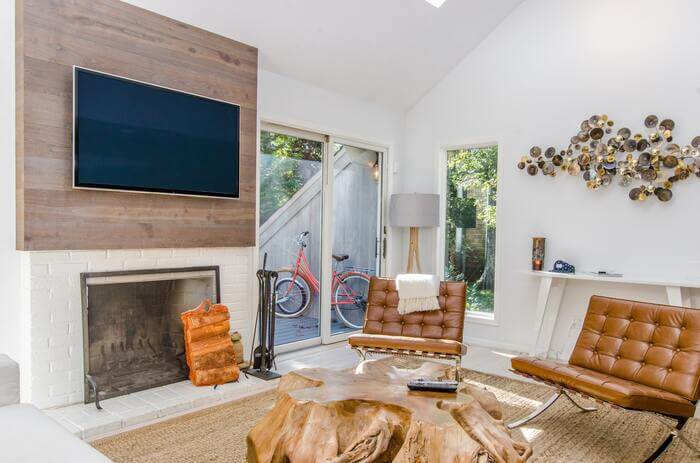Airbnb Neighbor Complaints: How To Prevent Them and Keep Neighbors Happy

Two of the most unpleasant experiences Airbnb hosts can have are unruly guests and unhappy neighbors. Airbnb neighbor complaints can cause serious obstacles for your business, so it’s crucial to prevent them from happening — and have a plan in place if they do.
Neighbors complain for any number of reasons, including noise, illegal parking, smoking in non-smoking areas, and so on. As the Airbnb host, it’s your job to set clear house rules and screen potential guests to control the noise levels, both of which iGMS can help you with.
What Leads To An Airbnb Neighbor Complaint?
A neighbor complaint about your Airbnb rental occurs when there is a conflict between your neighbor and your Airbnb guests. This conflict could be caused by excessive noise in a normally quiet neighborhood, parking on your neighbor’s property, or late-night parties.
Understandably, your neighbors are not the ones who signed on to host your Airbnb guests, so they may feel wronged if there’s excessive noise or uncontrollable guests. This is what will spur them to make complaints against your short-term rental.

Consequences of Ignoring Airbnb Neighbor Complaints
If your neighbor has noise or behavior complaints about your guests, they have a few options as to what actions they can take. Some more preferable than others.
Complain to You Directly
If your neighbor complains to you directly, you can keep local police and Airbnb support out of the situation — as long as you are able to respond appropriately and resolve the issue before it gets out of hand.
If your neighbor complains about your guests to you and you don’t do anything about it, you may lose their trust and they will be more inclined to escalate their complaints.
Report Your Property to Airbnb
The Airbnb platform has a Neighborhood Support process where your neighbor is able to submit a complaint online. Airbnb allows concerned neighbors to report noise or a party, neighborhood concerns, personal safety concerns, or other issues.
If a neighbor reports a listing to Airbnb this way, Airbnb will review the issue and get in touch with the hosts of the Airbnb listings. They will also do a follow-up investigation and report back to the neighbor if needed.
While the case would have to be quite extreme for Airbnb to suspend or take down your listing, having multiple Airbnb neighbor complaints against your listing on Airbnb will not be a good thing for your business. So, it’s best to be proactive from the start.
Complain to Local Regulatory Bodies
If a neighbor feels that the complaints they have about your listing break local community regulations, they may speak to local bodies such as building management or a local HOA.
These bodies often have a set of regulations that you would have agreed to in addition to your local laws. They are then tasked with code enforcement and you don’t want to find yourself on the other end of that so be sure to become familiar with these codes and rules.

Call Law Enforcement
If your guests are breaking noise codes, your neighbors might even decide to call law enforcement as a last resort. Not only will this affect your relationship with other neighbors, it’ll ruin any chance you have of a good review (which is critical to the success of your short-term rental property).
Your rental property forms a part of a greater community and if you want to make sure your Airbnb runs smoothly, then you need to state and enforce community rules in your rental property. Send these rules to any upcoming guests and have them sign a form that shows they have accepted these rules and intend to follow them.
File a Lawsuit Against You
If things get really out of hand, your neighbor may be able to elevate their neighbor complaints and take legal action against you in a small claims court. Dollar limits will differ depending on what state you’re in. For example, Los Angeles has a $10,000 limit on small claims.
This isn’t any cause for panic yet though, as this would be the last resort for anyone to take. Lawsuits are time-consuming, expensive, and risky. Because of this, it is in the interest of everyone involved to resolve the issue before it gets to this point.
Now it’s time to take a look at what you can do to prevent neighbor complaints altogether. Read on for our best tips to keep your neighbors happy.

Preventative Measures
Keeping your neighbors happy requires more than just asking your guests to be considerate and crossing your fingers that they don’t cause any noise complaints. To keep on top of things, it’s a smart idea to be proactive to avoid any issues. Here’s how to do it:
1. Communicate With Neighbors
Keeping the lines of communication open between you and your neighbors is one of the easiest of most effective steps to take. Building these relationships will allow your neighbor to feel comfortable enough to contact you when they have concerns. It will also ensure they are kept in the loop at all times which is one of the best ways to avoid Airbnb neighbor complaints.
If you don’t have a relationship with your neighbor yet, now is the best time to start. You could either go over to their place or invite them to yours to introduce yourself. It also doesn’t hurt to give them a small gift as a kind gesture, like a bottle of wine or a box of chocolates.
You should also tell them about your Airbnb and how you run it. Most importantly, you should let them know how they can contact you if they have any issues.
Then, it’s also a smart idea to keep them informed about your bookings. Sending them a text message well in advance letting them know when guests are meant to arrive and leave will help them plan ahead and be aware of what’s happening around their property.

2. Invest in Noise Management Tools and Software
The proptech industry is growing rapidly, offering technological solutions to every issue within the property management industry. One such solution is noise management tools and software.
Privacy-safe noise-measurement devices like the ones offered by Noiseaware can help to monitor sound remotely and reduce the risk of guests getting too noisy.
These devices are able to measure the decibel levels of noise, as well as its duration. By not recording any specific sounds or conversations, guests will still be able to keep their privacy.
Hosts are able to monitor the noise levels online and can use guest messaging to let them know if things become too loud. This means that you will be able to stop the noise before it travels next door and will greatly reduce the likelihood of neighbor complaints.
Seamless Integration With Minut Noise Monitor
iGMS offers integration with Minut. Combining Minut’s noise resolution tech with our robust tools means that you can protect your rentals remotely without having to be on call 24/7.
The integration allows you to sync your Minut properties with your iGMS guest data. If loud noise is detected at a property, the guest will automatically receive a message, letting them know to keep it down.
See how to set up the integrations via the Minut web app.

3. Screen Potential Guests Before Accepting Their Reservation
Another preventative measure is to screen your guests before you accept their reservations. Bad guests tend to leave a trail in their wake, and can very quickly decimate your Airbnb business. A bad guest will also leave tell-tale signs that hosts can look out for. Some of these red flags include:
- Poor communication from the guest
- An incomplete or deceptive-looking Airbnb profile
- Bad reviews from other hosts (or direct complaints)
- Reluctant to give you important personal information (ID numbers, payment information, etc.).
Although it is possible to screen your guests manually, this can get time-consuming if your guest turnover is frequent. If this is the case, guest screening software like Safely will help you save time while giving you the peace of mind that your guests have been screened and verified before arrival at your vacation rental.
4. Take Advantage of Host Reviews
As mentioned above, reading host reviews of potential guests is an important part of screening your guests and protecting your next-door neighbors from excessive noise and difficult behavior.
While Airbnb allows guests to review their stay, it also allows Airbnb hosts to review their experience with their guests. This is a great way to benefit from other hosts’ experiences. If other hosts are complaining about a potential guest — especially if it’s because they were the cause of noise complaints or rude behavior — common sense would lead the next Airbnb host to avoid taking on the same guest.
5. Ensure You Abide by the Regulations of Your Area
Going against the HOA regulations, local or zoning laws, or general regulations of your area is never a good idea. It could lead to hefty fines, trouble with local authorities and city governments, or serious obstacles for your Airbnb vacation rental business.
Therefore, it is important to be fully aware of the rules and regulations in your area, and include them in your house rules too, so that your guests can abide by them as well. For example, in Honolulu County, neighbors within 250 feet must have a 24-hour phone number to contact in case of complaints.
6. Ensure You Provide Clear Parking Instructions
While noise complaints are usually the number one grievance among next-door neighbors, having your guests park in their parking space or in front of their property may not go down well with them either.
These sorts of neighbor complaints can easily be prevented by giving your guests clear parking instructions in their check-in information. By doing so, your guests won’t need to make assumptions about where to park and end up parking in the wrong place when checking in to your Airbnb listing.

7. Limit the Number of Guests Allowed
Limiting your guests is especially necessary for short-term rentals in a quiet residential neighborhood. Noise complaints are more likely to happen if you have a large number of guests staying at your short-term rental at one time.
So, to prevent neighbor complaints, you should limit the number of guests allowed on your property. You should also consider whether or not you wish to allow pets. Unruly pets put you at risk of alienating your neighbors, so put the necessary approvals and precautions in place beforehand.

8. Do Not Allow Parties and Events
Parties and events are the roots of all noise evils for short-term rentals. They attract large crowds, loud music, and wild, misbehaving guests. When a residential area complains about Airbnb ruining neighborhoods, it’s usually the parties that are to blame. Do yourself a favor and prohibit parties in your Airbnb listing altogether.
If your Airbnb rental is in a family neighborhood and preventing a noise problem is a priority, the best thing to do would be to not allow any parties or events at your short-term rentals.
9. Clearly Communicate House Rules and Penalties for Breaking Them
Hosts of vacation rentals, as well as their neighbors next door, should not assume that Airbnb guests will automatically know the house rules and how to behave. Most hosts may assume that guests will automatically know to be quiet at night, and for most guests, this may be true. However, it’s always better to clearly state quiet times and your policies on parties and extra guests in the house rules.
Not only will this eliminate any confusion and ensure guests are aware of what they can and can’t do, but it will also give you leverage to enforce them. You can add a disclaimer to your house rules that a guest could incur penalties if the house rules are broken. These penalties could be a deduction from their security deposit or even eviction from the short-term rental.

Keeping the lines of communication open between you and your guest is just as important as communicating with your neighbors next door when you want to prevent complaints. This, of course, takes time. Each guest will need personal communication delivered just before their stay to ensure they are made aware of the rules of your short-term rental. This is where vacation rental software comes in handy.
Handling Airbnb Neighbor Complaints
If these preventative measures don’t work and despite guest screenings you do end up receiving noise complaints about your Airbnb or even reports of property damage, it’s important to know how to handle these.
First of all make sure you are familiar with your community guidelines and local regulations. Having a firm understanding of the facts will make dispute resolution easier.
If your neighbor relations are good, you might find that a simple sit down where you acknowledge the issue and explain steps you will take to address it will do the trick. However you’ll need to adapt your communication strategies if things are strained.
It might be worth considering the help of mediation services. An impartial third party who is trained in dispute resolution can help to make sure that emotions don’t get in the way of maintaining neighbor relations and the revenue of your Airbnb business isn’t impacted.
About the Author
Callan Riddles is the Content and Social Media Specialist at iGMS. Callan has a passion for finding new ways to help vacation rental businesses thrive. In her free time, she loves to travel, read, and experience all the new things that life has to offer.







